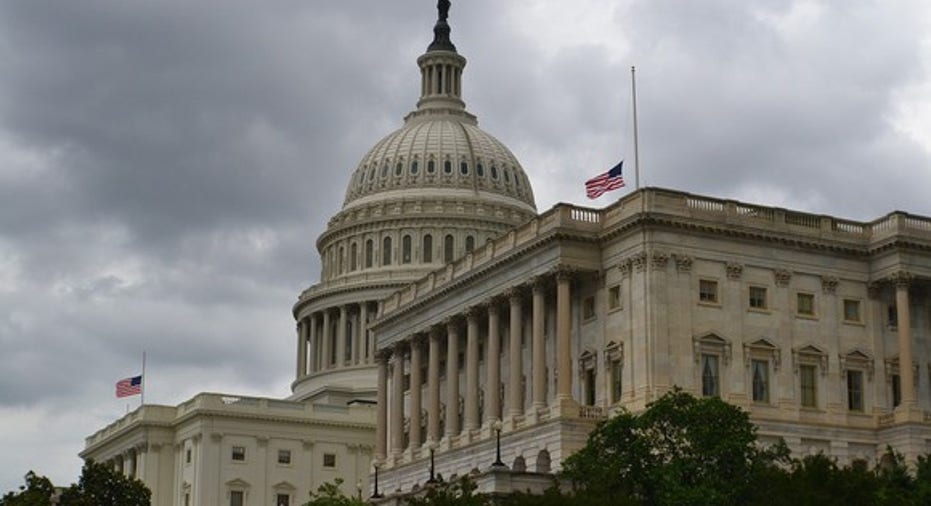Want to Double Economic Growth? Tax Reform is Key

In his victory speech early Wednesday, President-elect Donald Trump set an ambitious goal for his administration and for the nation: doubling economic growth.
America’s business leaders fully support this goal and believe the United States can achieve it. President Trump and the next Congress will quickly develop an economic policy agenda for 2017, and tax reform should be at the top of that list. Modernizing our anti-competitive tax system will enable increased business investment resulting in consistent and reliable job creation, a spark in productivity and an influx of foreign capital to the U.S.
We can achieve this; it’s within our grasp. The failures of our outdated U.S. tax system are well known, and there’s widespread, bipartisan recognition of both the need to fix it and the benefits that would follow. Indeed, candidate Trump -- and the Republicans in the House of Representatives – both proposed tax plans that would go a long way toward establishing a more pro-growth and competitive tax system. Senator Chuck Schumer (D-NY), who may become the next Democratic leader in the Senate, has also talked about the merits of international tax reform, coupled with infrastructure outlays.
The U.S. tax system’s first problem is that the United States has the highest top corporate tax rate of any country in the Organization for Economic Cooperation and Development (OECD) – about 39 percent when federal, state and local tax taxes are included. “Corporate income taxes are the most harmful for growth as they discourage the activities of firms that are most important for growth: investment in capital and productivity improvements,†according to an OECD analysis.
Employees across the country suffer as a result: Capital investment is what puts people to work, and increased productivity raises wages.
Other countries – U.S. competitors – recognized the damage caused by high tax rates and took action. In the three decades since the United States last undertook major business tax reform, most industrialized nations have dropped their corporate tax rates in order to attract business. The OECD average top corporate tax rate now stands at 24.2 percent, considerably below the top U.S. corporate rate.
The second significant problem with the U.S. tax system is its reliance on a pre-Internet, rotary phone era method of taxing international earnings of U.S.-headquartered companies. Using what’s called a territorial system, most developed countries impose little or no additional tax on the active foreign income of multinational companies. The United States, on the other hand, continues its use of a worldwide system of taxation – one our competitors have almost universally abandoned. Under this system, global companies pay taxes first in the foreign country where they made their earnings, and then, if they want to bring those earnings back home, they pay an additional U.S. tax.
These two fundamental problems have far-reaching, negative consequences. My economic team at EY analyzed the impact in a study on cross-border mergers and acquisitions (M&A) and found that America lost more than $179 billion worth of assets in the global M&A market this past decade because we've failed to keep pace with our trading partners’ upgraded tax systems.
This analysis concluded that a U.S. corporate income tax rate of 25 percent would have significantly reduced the disadvantages for U.S. companies. In fact, the report estimated that a 25 percent tax rate (the OECD average) would have kept 1,300 companies in the U.S. over the last 10 years.
In many cases, companies acquired in cross-border mergers and acquisitions are innovators; inventing new products and seeking to grow, often spinning off new companies. These are the kind of businesses that drive much of the new hiring in this country while creating the competition for talent that leads to higher wages.
President-elect Trump hit an inspirational note in his victory speech in New York City, vowing that “Every single American will have the opportunity to realize his or her fullest potential.†America’s business leaders share that vision, and believe that tax reform must be at the heart of realizing it.
Fiscally responsible, comprehensive tax reform, which includes competitive business tax rates and an updated system of international taxation, will pay significant dividends to U.S. businesses and workers. U.S. companies will become more globally competitive; innovation, investment and the creation of more high-paying jobs will all get a boost. And, we will be well on our way to doubling our economic growth.
Mark A. Weinberger is Global Chairman and CEO of EY and Chair of the Business Roundtable Tax and Fiscal Policy Committee. The BRT is an association of chief executive officers that lead companies with more than $6 trillion in annual revenues and nearly 15 million employees.



















